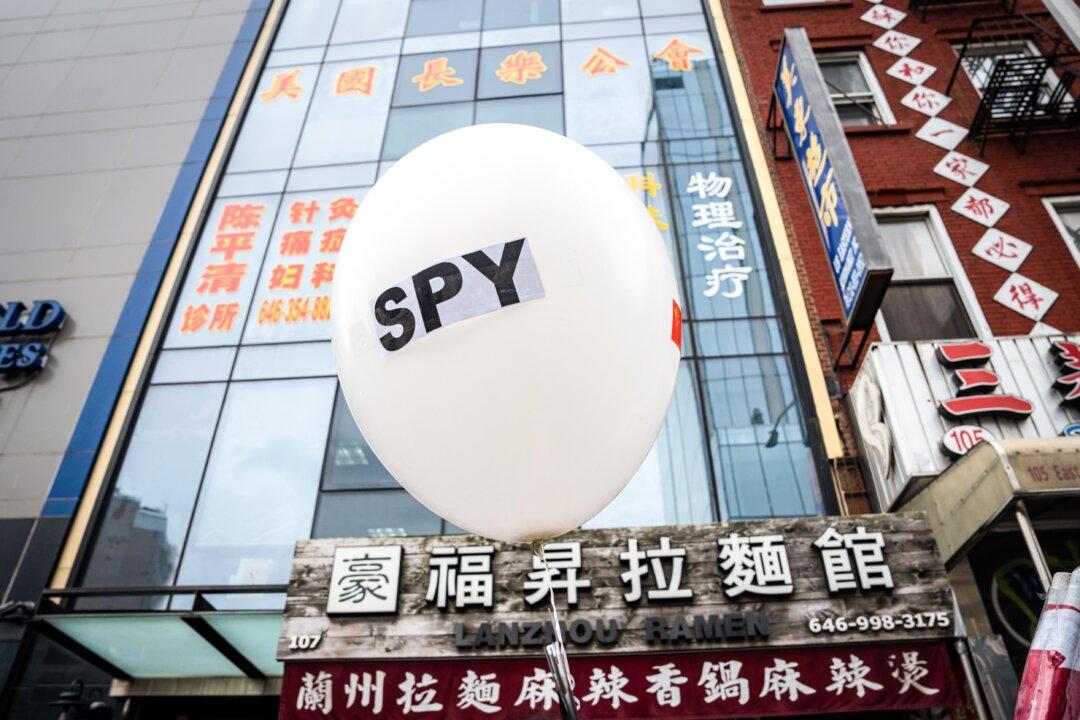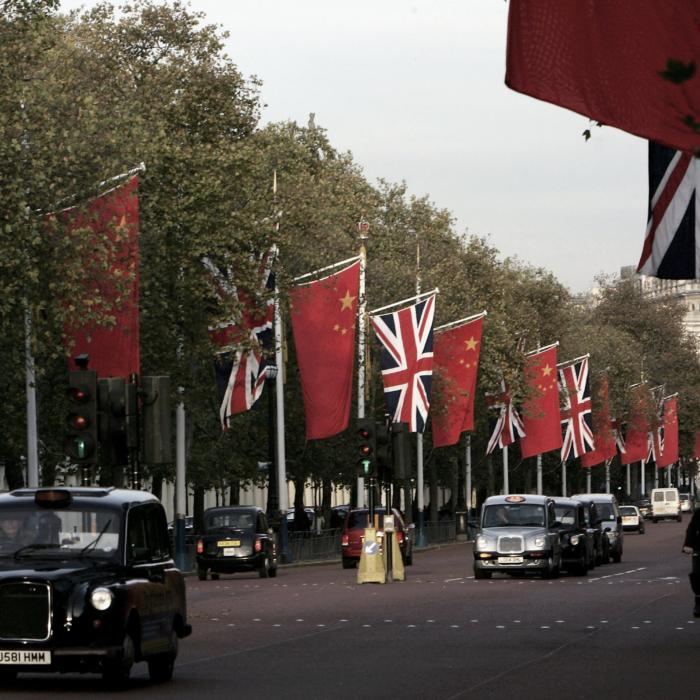NEW YORK—Yu Jing, who escaped China after being persecuted for her faith, did not expect that she would feel her freedom threatened in her newfound home.
Once an official with the state-run China Petroleum Pipeline Bureau in communist China, Yu lost her job and was subjected to three arrests and two house raids for her faith in Falun Gong, also known as Falun Dafa.
The spiritual practice involves a set of moral teachings with truthfulness, compassion, and tolerance as its core principles, as well as five meditative exercises. By 1999, an estimated 70 million to 100 million people were practicing in mainland China. Viewing the practice’s popularity as a threat to the Chinese Communist Party’s (CCP’s) power, then-leader Jiang Zemin ordered a brutal nationwide campaign of suppression that continues today.
In 2001, Yu almost died. After an 11-day hunger strike in protest of the persecution, during which she was deprived of sleep and faced nonstop threats from baton-wielding guards, her sweat-covered body began to shake uncontrollably. Had she been brought to the hospital 10 minutes later, the doctor told the guards, she wouldn’t have survived.
Yu escaped to freedom in mid-2015. Months later, she traveled to the nation’s capital to join a protest near the Washington Marriott Wardman Park, where Xi Jinping was staying on his first visit to the United States as the paramount leader of the Party.
She held a large white banner reading “Bring Jiang Zemin to Justice” in thick Chinese characters. She wanted the persecution to end and for Xi’s predecessor Jiang, the campaign’s chief architect, to be brought to account.
As Xi’s motorcade was driving past in the late afternoon, Yu suddenly found herself swarmed by a large number of men donning red T-shirts. They held up red flags in an effort to cover Yu’s face and banner. They continued to surround her even after police warned them to step away.
“Never would I imagine that in a free society like the United States, these pro-Chinese Communist Party agents could be so out of control,” she told The Epoch Times, recalling her shock at the time.
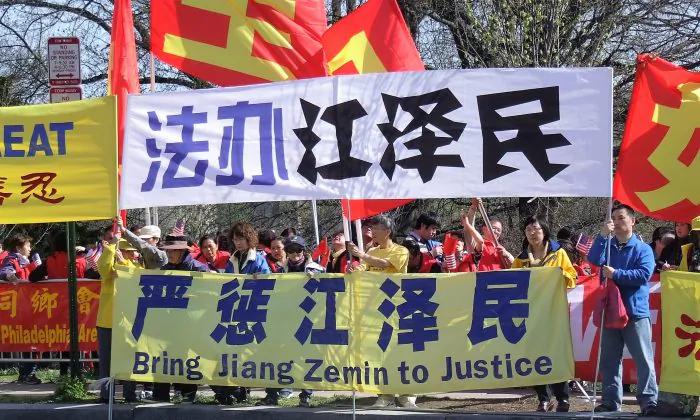
Many in the overseas Chinese dissident community have long known such pro-Beijing protesters to be organized by local groups closely tied to the CCP.
A federal indictment last month confirmed this connection.
‘Mafia Tactics’
Roughly 60 million ethnic Chinese live outside of China, with about 1 in 12 of them in the United States, according to 2020 statistics compiled by Chinese state-run Huaqiao University. The school operates under the oversight of the United Front Work Department, a key state agency spearheading Beijing’s influence campaigns to stifle dissidents and co-opt Western groups to toe the Party line.Spying, harassment, online threats, physical assaults, and pressuring China-based family members of targeted individuals are but a few of the tactics the CCP deploys to keep this growing population in check.
Nor is Beijing shy about its record. From April 2021 to July 2022, authorities coerced 230,000 Chinese nationals, whom they labeled as fraud suspects, into returning to China, Chinese state media have touted.
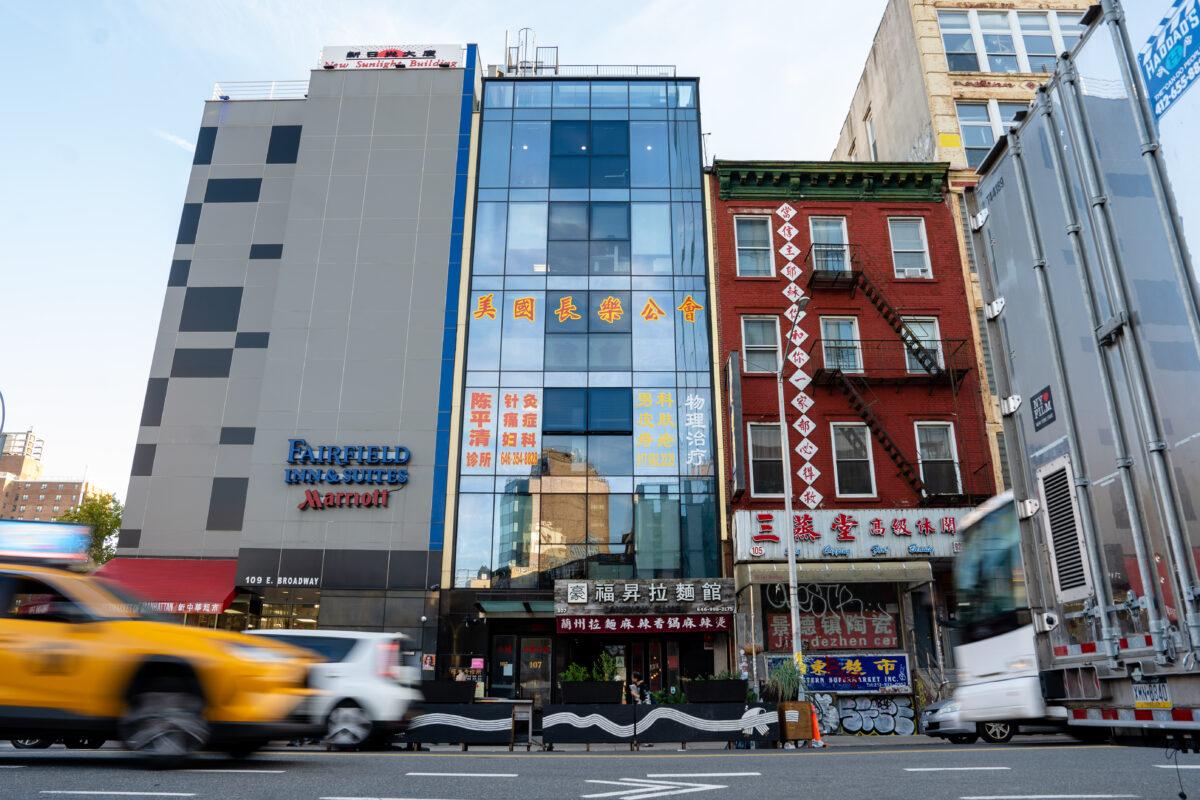
Laura Harth, campaign director at human rights nonprofit Safeguard Defenders, described the Department of Justice’s (DOJ’s) April 17 action as part of a “sea change” from U.S. authorities to deter covert overseas Chinese operations.
Sarah Cook, senior analyst at Washington-based nonprofit Freedom House, similarly described the DOJ charges as “unprecedented” in addressing Beijing’s transnational repression.
She said the prosecutions are the first to address the secret police stations, the first of such scale, and the first to target perpetrators of one of the regime’s largest campaigns against faith: the persecution of Falun Gong.
Even though most of the individuals charged live in China, there’s still a real-world impact, Cook told The Epoch Times.
“For one, they cannot come to the U.S. without facing arrest, and potentially, they have to be careful about traveling to other countries that have extradition treaties with the U.S.,” she said.
While applauding the charges, both Harth and Cook, along with the other China watchers, lawmakers, and victims of the campaigns, contend that the cases only touched on “the tip of the iceberg.”

“The arrest of Chinese Communist Party agents involved with setting up the illegal CCP police station in New York is a small but important victory for American sovereignty and dissidents fleeing oppression who have made America their home,” Rep. Michael Gallagher (R-Wis.) told The Epoch Times.
“The CCP’s mafia tactics—surveillance, harassment, blackmail, assault, and the persecution of elderly parents, spouses, and children back in China—cannot be tolerated in America.
Paying Protesters
The two New Yorkers that the FBI arrested on April 17 are Lu Jianwang and Chen Jinping, respectively the general adviser and the secretary general for the America ChangLe Association, a major social gathering place for people from southeastern China’s Fujian Province.The facility they operated was located in the association’s now-shuttered office in Manhattan’s Chinatown, and it represented one of four Chinese extralegal police outposts in the United States, according to Safeguard Defenders. At least two other outposts exist in New York and Los Angeles; the location of a fourth outpost remains unknown.
Formerly the association’s chairman, Lu enjoyed longstanding trust from Chinese authorities, court filings state.
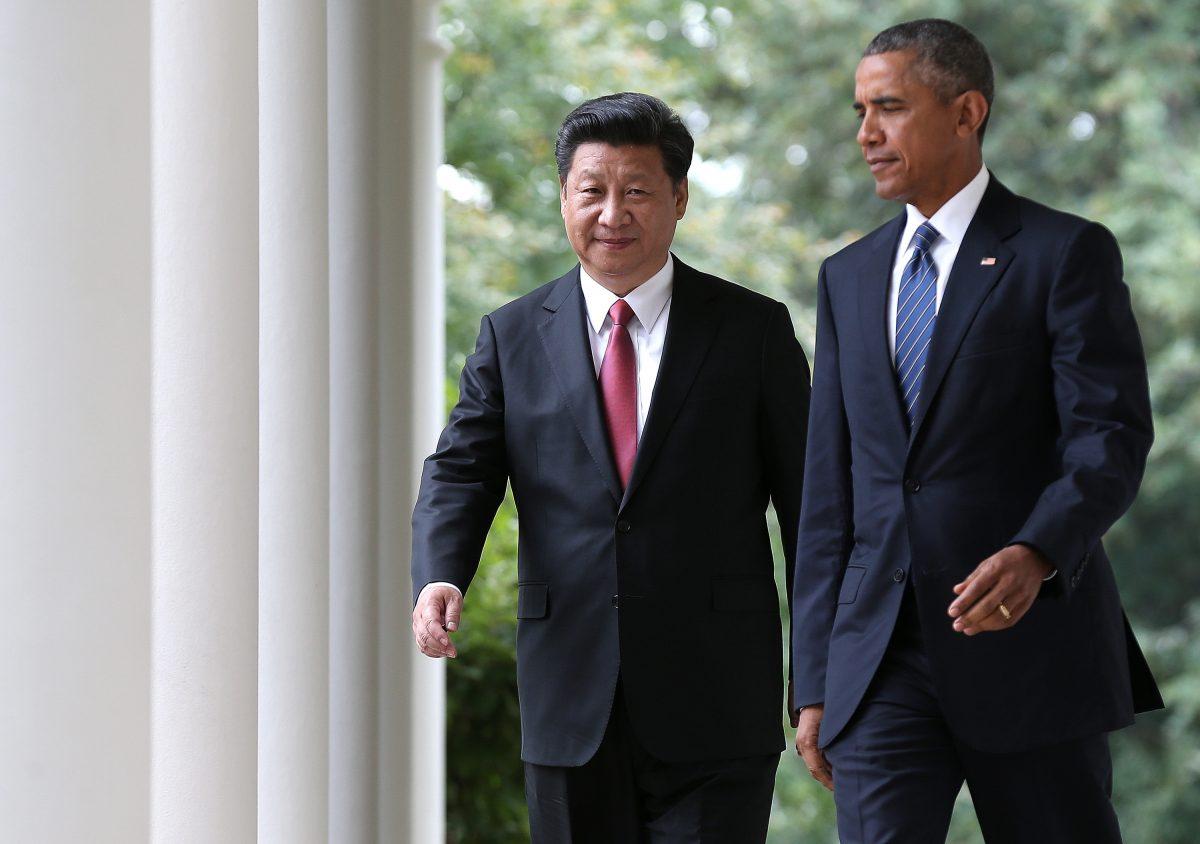
During Xi’s 2015 visit to the United States, court filings said, Lu and other local Chinese association leaders helped bus hundreds of people to Washington—each pocketing $60 from the Chinese Consulate in New York—to counter demonstrations from Falun Gong adherents.
The adherents sought to raise awareness about the ongoing persecution of fellow practitioners in communist China.
Apparently satisfied with the counterprotest’s outcome, Chinese officials threw a ceremony in celebration, during which Lu received a plaque commending his work.
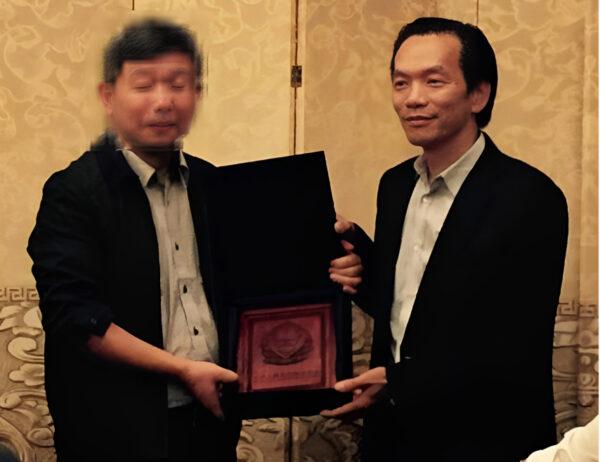
Such scenes were not unique to Washington. During Xi’s three-day stopover in New York from Washington, Xu Dong, a Chinese American and a Falun Gong adherent, recalled several people trying to get in front of him to block his protest banner from view as he stood near Xi’s hotel. The individuals, who wielded red banners, spoke a Fujian dialect.
Not wanting to make a scene, several other Falun Gong adherents moved away. But Xu, who had just become a U.S. citizen, stood his ground.
Lunch Boxes and ‘a Free Ride’
Zhang Huidong, who held the other end of the banner with Yu Jing, remembered counting six to seven buses, with some coming from Connecticut, Virginia, North Carolina, and Philadelphia.They arrived at different times over the course of the day, depending on which shift they were scheduled for. At lunch, people holding banners that identified their respective Chinese associations came to distribute lunch boxes, Zhang recalled.
One man, who looked like a leader, even mocked Zhang, who, like other adherents, had brought his own food.
The man asked Zhang, “What do you do this for?”
Another, a student from Connecticut, told Zhang, “We got a free ride,” referring to the bus trip.
The men became edgy when cameras were around them.
When Zhang, who limps slightly due to injuries sustained while attempting to escape from a Chinese jail two decades ago, raised his phone to capture their behavior, the Beijing supporters dodged it, throwing curses. A reporter for a Western media outlet quickly found himself the focus of hostility, with some from the group pulling him by the arm and demanding that he delete his photos.
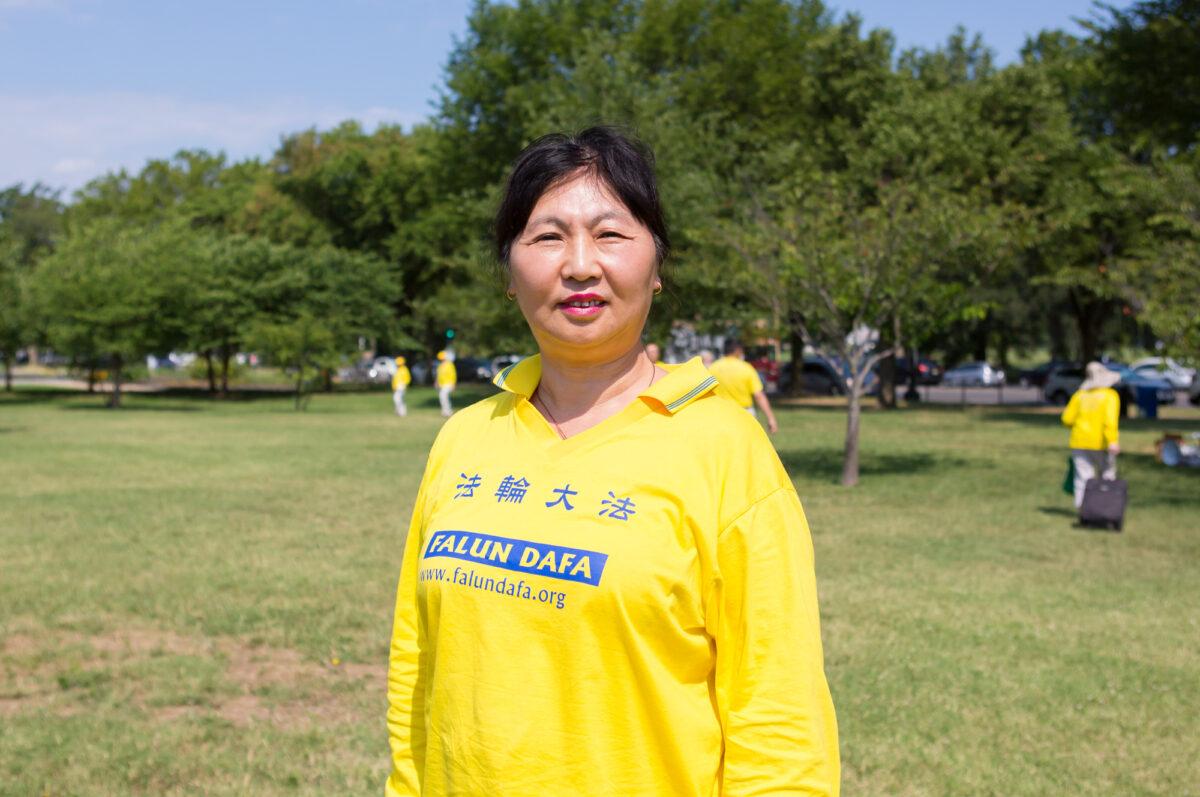
Yu learned about a year later that the counterprotesters had been paid, when she started driving for a Chinese senior care center with a close relationship with the Chinese Embassy. Several senior citizens told her they were promised $20 to $50 for showing up to welcome Xi. Many took the offer.
Lu, a participant in the counterprotest, has admitted to having an affiliation with a former director of the 610 Office, an extralegal police force created to persecute Falun Gong. He and the director had taken a photo together in front of his home in China, the court filing shows.
Zhang said the pro-Beijing camp’s behavior left him speechless.
“For a bit of money, they seemed willing to betray everything,” Zhang told The Epoch Times. “It’s simply disgusting.”
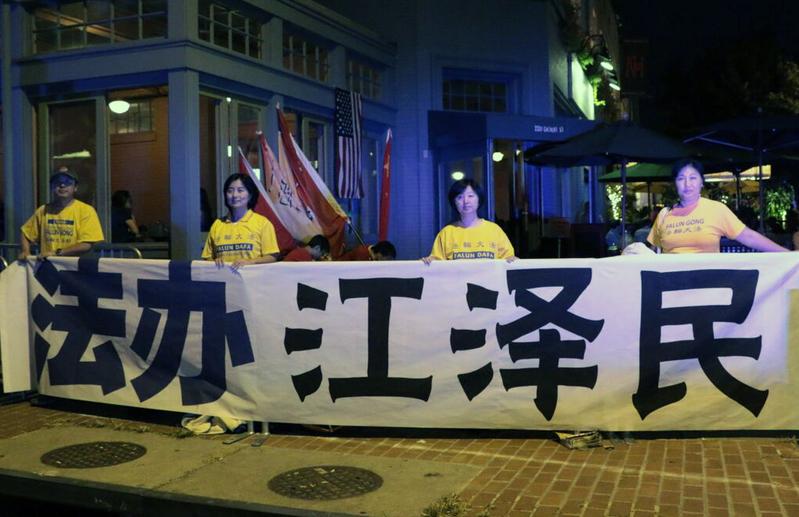
As Zhang pulled the flags away from the banner, the men began poking him in the waist, and in the melee, a metal flagpole jabbed a female security officer.
According to Yu, the officer grabbed the flag and angrily told the Beijing supporters they could get arrested if they didn’t stay six feet away from the adherents.
The remarks touched Yu to this day. “Thank you,” she remembered telling the officer. “In China, it was the Chinese police persecuting me.” The police officer hugged her upon learning her story.
‘This Is My Area’
Those interactions in 2015 marked one of many run-ins Falun Gong adherents and other dissidents have had with suspected CCP front groups and agents over the years. In front of the Chinese Consulate in Manhattan, Falun Gong adherents who held banners to protest the persecution were frequently spat on, with one practitioner having their phone kicked out of their hands, multiple witnesses said.In February, one man, who has for years harassed protesting adherents while displaying red banners with slogans defaming the faith, pushed a sign bearing the words “truthfulness, compassion, and tolerance” off the street curb and demanded that two women who were practicing meditative exercises nearby leave the area.
The man declared, “You can’t practice exercises here. This is my area,” according to 70-year-old Liu Guofang, one of the two adherents at the scene. The man repeatedly tried to spit on Liu and the other woman, causing both to run onto the road.
Eventually, a construction worker who witnessed the interaction alerted the police. Liu then watched the man flee across the street to the front gate of the Chinese Consulate, where he loitered. The man came back the next day and harassed other adherents, Liu said.
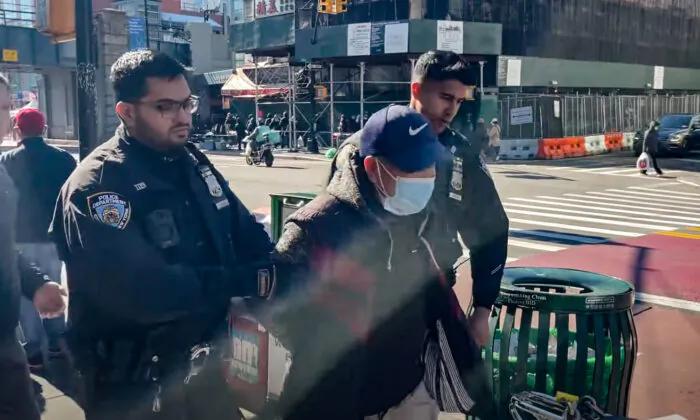
Liu suspects that the timing of these occurrences wasn’t coincidental. “They might have gotten some directives,” she said of the men.
Levi Browde, executive director of the New York-based Falun Dafa Information Center, has documented a long list of similar CCP agent attacks on American soil during his past two decades of advocacy work.
“This is not something that’s new to us,” Browde told The Epoch Times’ sister media outlet NTD after reading the DOJ documents. “We’ve been dealing with this for more than 20 years—be it death threats, physical assaults, breaking into our homes, online harassment, interfering with our livelihood, threatening family members back in China.”
Besides threatening the physical safety of adherents, he said, the “thuggish” communist agents have also drummed up hatred online, spread propaganda in newspapers, or found other ways to influence the public discourse.
‘They Hide in the Dark’
In the eyes of San Francisco lawyer Arthur Liu (no relation to Liu Guofang), the United States is decades late in addressing such threats.“The CCP’s transnational repression activities have never stopped,” he told The Epoch Times. “It’s decades in the making.”
Liu was a student leader during the pro-democracy Tiananmen Square protests in 1989. After the regime ordered tanks and guns to quell the movement that June, Liu escaped to the United States, where he raised his daughter, Alysa Liu, a two-time U.S. champion in figure skating.

But the regime didn’t let him off the hook. Not long after Liu arrived in the United States, the CCP sent an agent to befriend him and collect intelligence on him. Liu, who trusted the man, even once asked a friend to let the man stay with them temporarily. Only about two or three years later did the man reveal that he had “come on assignment.”
“We’d have had no idea about it if he hadn’t told me. So could there be spies out there you don’t know about? The answer is probably yes,” Liu said.
That was in the 1990s. He said that the Party has become more “reckless” as it fine-tunes its repression mechanism.

After the free skate event in Beijing last February, Liu’s daughter was approached by a stranger who followed her and asked her to come to his apartment.
“The CCP never let go of any opportunity to surveil and spy,” Liu said, adding that he has learned not to concern himself too much with it.
‘No Time to Waste’
Harth, of Safeguard Defenders, is wary about the long path ahead in protecting the vulnerable from the regime’s reach.“We all know that this is, in fact, a massive, global operation. We all know that it will take coordinated action also across democratic nations, because sometimes a victim might be in the U.S., but the perpetrator might be somewhere in Europe,” she said. And “very realistically, we know ... the CCP is effectively holding family members hostage.”
Late or not, an effective counterblow by the United States is still crucial and “entirely possible,” said Zhou Fengsuo, who was once one of Beijing’s top five “most wanted” over his role in the 1989 Tiananmen Square protests.
For Harth, that partly involves closing “some gaps in the current criminal codes” to allow the DOJ to prosecute more easily. And for Zhou, it would mean more scrutiny of the potential enablers: the various Chinese immigrant community groups that register as nonprofits but still receive benefits from the Chinese state. Such groups, he said, have stifled pro-democracy activists and “like a crime syndicate, exercise control over the entire ethnic Chinese society.”

“There’s no time to waste,” Zhou told The Epoch Times. Zhou founded the advocacy group Human Rights in China, which he says is ready to help any Chinese students who’ve been victims of the regime’s threats.
Browde, meanwhile, says he hopes the recent DOJ action is one of many more to come.
“It sends a critically clear message to the CCP that you can’t bring your thuggish tyranny here to the United States and do all these things that they’ve gotten away with, to a large extent, over the last 20 years,” he said. “You can’t do this anymore. You will be arrested; justice will be served. And even if you are in China, there are things to be done—sanctions and things like that. So we need more of these types of investigations and more of these indictments.”
